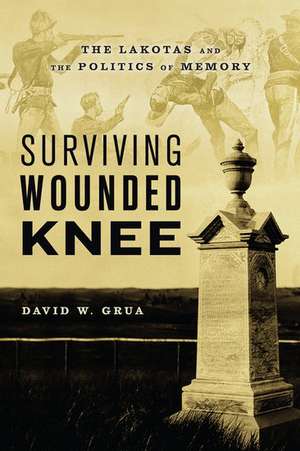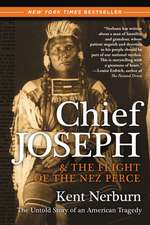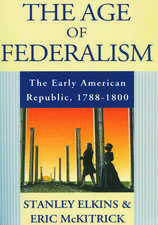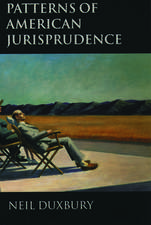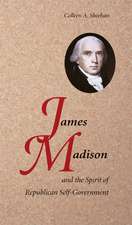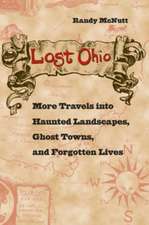Surviving Wounded Knee: The Lakotas and the Politics of Memory
Autor David W. Gruaen Limba Engleză Paperback – 13 aug 2019
| Toate formatele și edițiile | Preț | Express |
|---|---|---|
| Paperback (1) | 195.91 lei 10-16 zile | |
| Oxford University Press – 13 aug 2019 | 195.91 lei 10-16 zile | |
| Hardback (1) | 365.65 lei 31-37 zile | |
| Oxford University Press – 11 feb 2016 | 365.65 lei 31-37 zile |
Preț: 195.91 lei
Preț vechi: 241.63 lei
-19% Nou
Puncte Express: 294
Preț estimativ în valută:
37.49€ • 39.24$ • 31.02£
37.49€ • 39.24$ • 31.02£
Carte disponibilă
Livrare economică 04-10 martie
Preluare comenzi: 021 569.72.76
Specificații
ISBN-13: 9780190055578
ISBN-10: 019005557X
Pagini: 290
Ilustrații: 25 illus.
Dimensiuni: 231 x 155 x 20 mm
Greutate: 0.41 kg
Editura: Oxford University Press
Colecția OUP USA
Locul publicării:New York, United States
ISBN-10: 019005557X
Pagini: 290
Ilustrații: 25 illus.
Dimensiuni: 231 x 155 x 20 mm
Greutate: 0.41 kg
Editura: Oxford University Press
Colecția OUP USA
Locul publicării:New York, United States
Recenzii
Surviving Wounded Knee offers insight into an aspect of the massacre at Wounded Knee that has received little attention: how the authoritative memory of the event developed and ultimately informed congressional action. Grua aptly demonstrates how the national memory of Wounded Knee was shaped in a colonial context, persisted in the face of contradictory evidence, and served to work against the interests of the survivors of Wounded Knee. His is not a one-sided story but one that works to provide a more balanced analysis of the memory of Lakota survivors of Wounded Knee with that of the authoritative national memory.
...Grua has provided a careful analysis of the early twentieth-century politics of memory of the most iconic and paradigmatic massacre in American history. And in the process, he has contributed to our ongoing reevaluation of the history of Indians wars through historical memory.
Surviving Wounded Knee depicts the fight for meaning that followed the physical confrontation as the US Army, Buffalo Bill, and, above all, the Lakota struggled to explain the traumatic violence that took place that winter morning in 1890. With its close attention to Lakota efforts to remember and memorialize Wounded Knee, Grua's work foregrounds not only indigenous perspectives on a horrific event but offers a guide of sorts to what a more humane and ethical Western history might be.
With its detailed discussion of this important moment in the American past and straightforward style, this book is ideal for use in undergraduate and graduate courses in a range of social science disciplines."-Debra Buchholtz, Historical Dialogues
David Grua's excellent examination of a contested public memory compellingly argues that the Wounded Knee Massacre was heavily influenced by the politics of memory and race-war philosophy...An excellent conversation about the contested memory of the 1890 massacre, and is a fantastic addition to memory studies and American ethnic history. Grua's writing is very accessible and I would highly recommend this book for use in a graduate reading seminar or an upper-division undergraduate course.
By implicating archives in the erasure of indigenous testimony, Grua's work invites scholars to ask additional questions about the construction of military archives and how the manufacture, exchange, and cataloguing of records silenced indigenous voices. By following Lakota history into the early twentieth century, Grua documents a new period of Lakota intervention in the politics of memory.
Grua tells a gripping story: persistent survivors, callous bureaucrats...white allies, and maneuvering politicians. He also shows the strains within the survivor group and identifies points where the government's and the Lakotas' versions of events diverged. Surviving Wounded Knee offers the most detailed narrative of the 'politics of memory' I have ever read...Books of this quality remind us that Native American history does more than add brown faces to famous events.
Eloquent and persuasive...Grua's book is meticulously researched and well written...Surviving Wounded Knee is a powerful and provocative lens for anyone interested in questions of violence and memory, conquest and resistance.
[A]n important contribution that pushes our understanding of how and why Wounded Knee was remembered during and after the turn of the nineteenth century, and how and why the dominant memory was asserted and then challenged immediately after the violence ended in 1890...Grua not only looks at a troubling topic in American and world history but also pushes the scholarship in new and needed directions. His monograph is a welcome addition to the canon of American and North American history.
Surviving Wounded Knee's most important contribution is showing the process by which a small group of dispossessed people memorialized their loved ones and documented their losses despite almost fifty years of official denial by most military sources Grua's work stands as both a finely written history and as a tribute to the Lakota men and women who spent their lives demanding justice from an unjust system.
The power that words can hold over human destiny forms the heart of this book...Gives an important story the attention that it has long deserved.
Painful, powerful, and impossible to put down, Surviving Wounded Knee is a thoughtful meditation about the collision of history and memory in a settler-colonial society. This book transformed my understanding of one of the darkest chapters in the nation's history.
The 1890 massacre at Wounded Knee casts a long shadow in American history. Grua's fascinating study tracks the protracted contest, which began immediately after the last shot was fired, to tell the story of what really happened on that wintry day. Whose version would prevail: the army's or the Indians'? Military men disagreed among themselves while the Lakota survivors' rendition, emphasizing army perfidy, was ignored for many years. Now, Grua brings it into full light. In doing so, he reveals the survivors' indomitable spirit and determination to prevail-if not on the killing fields-at least in the battle over memory and meaning.
David Grua's Surviving Wounded Knee takes a completely original approach to one of the most famous and contested events in western American history. By showing how Lakota survivors of Wounded Knee fought a long battle to overturn a dominant narrative that blamed Lakotas for the massacre, Grua's careful and sensitive analysis of the politics of memory both explains and exemplifies a more humane western history.
Grua's work stands as both a finely written history and as a tribute to the Lakota men and women who spent their lives demanding justice from an unjust system.
...Grua has provided a careful analysis of the early twentieth-century politics of memory of the most iconic and paradigmatic massacre in American history. And in the process, he has contributed to our ongoing reevaluation of the history of Indians wars through historical memory.
Surviving Wounded Knee depicts the fight for meaning that followed the physical confrontation as the US Army, Buffalo Bill, and, above all, the Lakota struggled to explain the traumatic violence that took place that winter morning in 1890. With its close attention to Lakota efforts to remember and memorialize Wounded Knee, Grua's work foregrounds not only indigenous perspectives on a horrific event but offers a guide of sorts to what a more humane and ethical Western history might be.
With its detailed discussion of this important moment in the American past and straightforward style, this book is ideal for use in undergraduate and graduate courses in a range of social science disciplines."-Debra Buchholtz, Historical Dialogues
David Grua's excellent examination of a contested public memory compellingly argues that the Wounded Knee Massacre was heavily influenced by the politics of memory and race-war philosophy...An excellent conversation about the contested memory of the 1890 massacre, and is a fantastic addition to memory studies and American ethnic history. Grua's writing is very accessible and I would highly recommend this book for use in a graduate reading seminar or an upper-division undergraduate course.
By implicating archives in the erasure of indigenous testimony, Grua's work invites scholars to ask additional questions about the construction of military archives and how the manufacture, exchange, and cataloguing of records silenced indigenous voices. By following Lakota history into the early twentieth century, Grua documents a new period of Lakota intervention in the politics of memory.
Grua tells a gripping story: persistent survivors, callous bureaucrats...white allies, and maneuvering politicians. He also shows the strains within the survivor group and identifies points where the government's and the Lakotas' versions of events diverged. Surviving Wounded Knee offers the most detailed narrative of the 'politics of memory' I have ever read...Books of this quality remind us that Native American history does more than add brown faces to famous events.
Eloquent and persuasive...Grua's book is meticulously researched and well written...Surviving Wounded Knee is a powerful and provocative lens for anyone interested in questions of violence and memory, conquest and resistance.
[A]n important contribution that pushes our understanding of how and why Wounded Knee was remembered during and after the turn of the nineteenth century, and how and why the dominant memory was asserted and then challenged immediately after the violence ended in 1890...Grua not only looks at a troubling topic in American and world history but also pushes the scholarship in new and needed directions. His monograph is a welcome addition to the canon of American and North American history.
Surviving Wounded Knee's most important contribution is showing the process by which a small group of dispossessed people memorialized their loved ones and documented their losses despite almost fifty years of official denial by most military sources Grua's work stands as both a finely written history and as a tribute to the Lakota men and women who spent their lives demanding justice from an unjust system.
The power that words can hold over human destiny forms the heart of this book...Gives an important story the attention that it has long deserved.
Painful, powerful, and impossible to put down, Surviving Wounded Knee is a thoughtful meditation about the collision of history and memory in a settler-colonial society. This book transformed my understanding of one of the darkest chapters in the nation's history.
The 1890 massacre at Wounded Knee casts a long shadow in American history. Grua's fascinating study tracks the protracted contest, which began immediately after the last shot was fired, to tell the story of what really happened on that wintry day. Whose version would prevail: the army's or the Indians'? Military men disagreed among themselves while the Lakota survivors' rendition, emphasizing army perfidy, was ignored for many years. Now, Grua brings it into full light. In doing so, he reveals the survivors' indomitable spirit and determination to prevail-if not on the killing fields-at least in the battle over memory and meaning.
David Grua's Surviving Wounded Knee takes a completely original approach to one of the most famous and contested events in western American history. By showing how Lakota survivors of Wounded Knee fought a long battle to overturn a dominant narrative that blamed Lakotas for the massacre, Grua's careful and sensitive analysis of the politics of memory both explains and exemplifies a more humane western history.
Grua's work stands as both a finely written history and as a tribute to the Lakota men and women who spent their lives demanding justice from an unjust system.
Notă biografică
David W. Grua is a historian and documentary editor with the Joseph Smith Papers in the Church History Department of The Church of Jesus Christ of Latter-day Saints.
